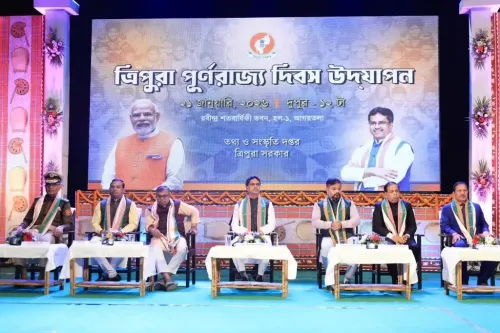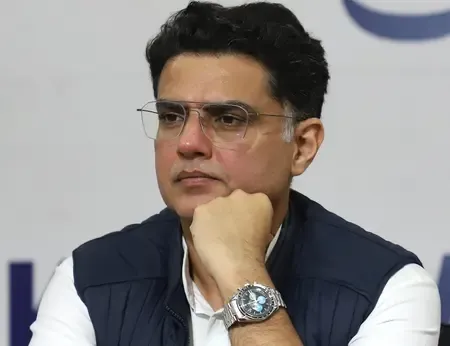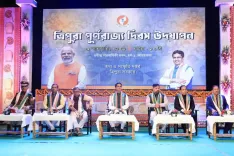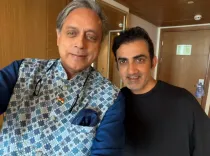Should the Supreme Court Entertain Writ Petitions or Refer Them to the High Court for Waqf (Amendment) Act Challenges?
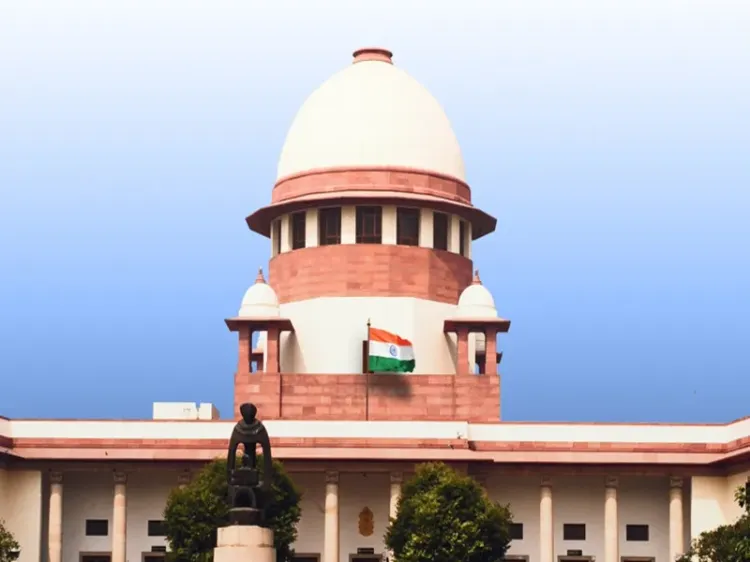
Synopsis
Key Takeaways
- The Supreme Court is deliberating on the writ petitions regarding the Waqf (Amendment) Act, 2025.
- The bench is led by CJI Sanjiv Khanna and includes Justices Sanjay Kumar and K.V. Viswanathan.
- Numerous petitions have been filed against the amendments to the Waqf Act, 1995.
- The Union government has filed a caveat in response to the petitions.
- Several BJP-ruled states are supporting the Waqf (Amendment) Act, 2025.
New Delhi, April 16 (NationPress) The Supreme Court posed a question to the petitioners contesting the constitutional validity of the Waqf (Amendment) Act, 2025, asking them to clarify why the apex court should consider the writ petitions filed directly rather than transferring the issue to the High Court.
The bench, led by CJI Sanjiv Khanna, stated: "We would like both parties to address two key points. First, should we entertain the writ petitions or refer them to the High Court? Second, what arguments do you wish to present?"
The bench included Justices Sanjay Kumar and K.V. Viswanathan, who are currently hearing the submissions made by senior advocate Kapil Sibal, representing one of the petitioners.
Numerous petitions have been submitted to the Supreme Court, challenging the constitutional validity of the recent modifications made to the Waqf Act, 1995.
In response to the petitions calling for a halt on the implementation of the Waqf (Amendment) Act, 2025, the Union government has filed a caveat in the Supreme Court. A caveat acts as a notification sent to a court by a party in a lawsuit wishing to be heard if a stay order is anticipated on the opponent's request.
Additionally, several states governed by the BJP, such as Haryana, Maharashtra, Madhya Pradesh, Rajasthan, Chhattisgarh, Assam, and Uttarakhand, have approached the Supreme Court to support the Waqf (Amendment) Act, 2025.
Following the passage of the legislation by Parliament in the first week of April, the Congress announced its intention to contest the Waqf (Amendment) Bill (now an Act after receiving Presidential assent) in the Supreme Court, asserting that it was an assault on the fundamental structure of the Constitution and aimed at "polarizing" and "dividing" the nation based on religion. Conversely, the government claims that millions of underprivileged Muslims will benefit from this legislation, which does not harm any individual Muslim. Minority Affairs Minister Kiren Rijiju asserted that the legislation does not interfere with Waqf properties, emphasizing that the Modi government operates with the vision of 'Sabka Saath and Sabka Vikas'.
In his petition submitted to the apex court, Congress MP and party whip in the Lok Sabha, Mohammad Jawed, argued that the amendments contravene Articles 14 (right to equality), 25 (freedom to practice and propagate religion), 26 (freedom of religious denominations to manage their religious affairs), 29 (minority rights), and 300A (right to property) of the Constitution.
Another petition submitted by All India Majlis-e-Ittehadul Muslimeen (AIMIM) chief Asaduddin Owaisi claimed that the amendments are "ex facie violative of Articles 14, 15, 21, 25, 26, 29, 30, 300A of the Constitution of India and manifestly arbitrary".
Many other individuals and organizations, such as the Association for Protection of Civil Rights, AAP leader Amanatullah Khan, Maulana Arshad Madani of Jamiat Ulema-i-Hind, the All India Muslim Personal Law Board (AIMPLB), the Social Democratic Party of India (SDPI), the Indian Union Muslim League, Taiyyab Khan Salmani, and Anjum Kadari, have also filed petitions contesting the constitutional validity of the Waqf (Amendment) Act 2025.
The term ‘Waqf’, grounded in Islamic laws and traditions, signifies an endowment made by a Muslim for charitable or religious purposes, encompassing mosques, schools, hospitals, or other public institutions.




